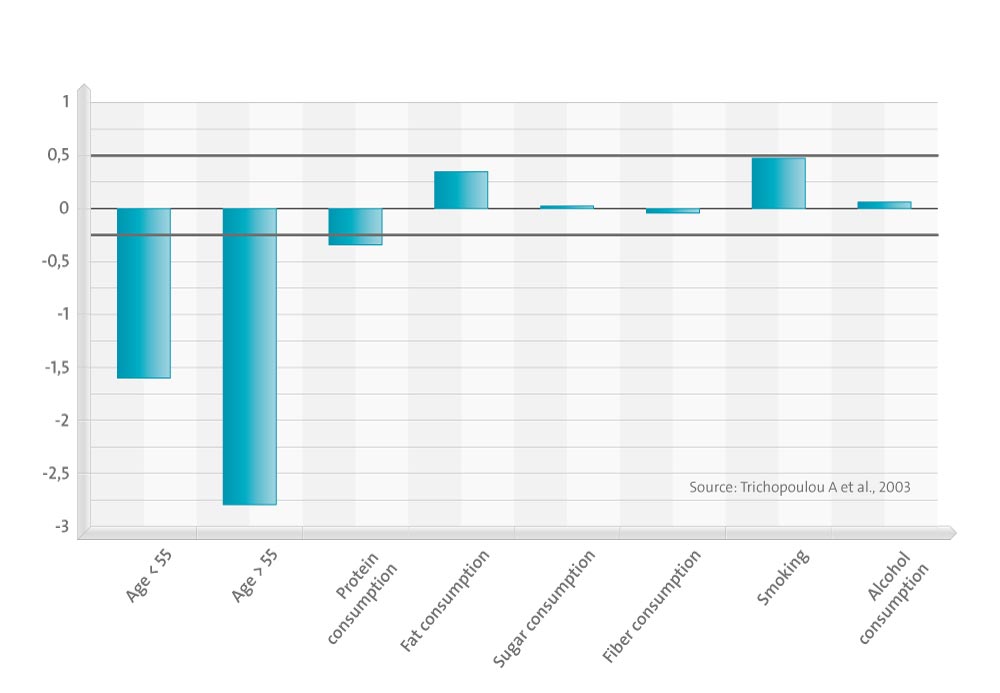Background/aims
Dehydroepiandrosterone (DHEA) is generally considered to have beneficial effects in humans. There is, however, limited information concerning the role of lifestyle variables, including diet, on blood DHEA levels. We have undertaken a study of DHEA determinants in a general population sample of adult Greeks.
Methods
The sample consisted of 620 apparently healthy men and women aged 35-65 years, from all over Greece, participating in the EPIC study. Plasma DHEA was determined by radioimmunoassay. Nutritional intakes were ascertained through an interviewer-administered validated food frequency questionnaire, which also contained information on lifestyle variables. Statistical analyses were undertaken through simple cross-tabulations and by modelling the data through multiple regression.
Results
DHEA declines sharply with age and there is some evidence that the decline may be sharper in men than in women. Protein intake was significantly inversely associated with plasma levels of DHEA, whereas other dietary factors, energy expenditure and anthropometric variables were unrelated to this hormone. Alcohol intake and tobacco smoking tended to be positively related to DHEA, but the respective associations were not statistically significant.
Conclusion
There has been a growing interest in replacement of DHEA in ageing adults. If confirmed, our results would indicate that a reduction in protein intake could have qualitatively similar effects.
